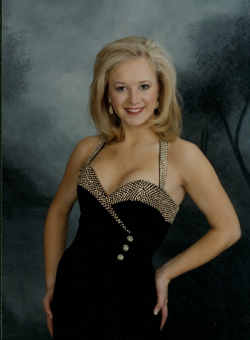I have Dyslexia, Dyslexia doesn't have me!

How It All Started
When I was in third grade, I was diagnosed with a learning disorder called dyslexia. This was incredibly arduous for me to overcome. I thought that if I acknowledged I had a learning disability that I was also accepting that I was dumb and stupid. Subsequently, I became obstinate and disregarded my clinically diagnosed disability, which impaired me in the classroom. Some of the unpleasant memories I have occurred in the first and second grade. During companion reading time, I would make sure my partner would read first so I could memorize what was said. I would also sit next to a friend during silent reading time and turn the page when she did.
I was so good at hiding my disability that no one knew I couldn’t read until the 3rd grade. However, there were visible signs of my disability as early as the age of 6. My piano teacher caught on quite quickly that I was not reading the music notes, but pretended too. Even today as a pianist I don’t read music. I watch my piano teacher move her fingers on the key board and repeat what she did. Between my amazing ‘ear’ and memory, I know how to play. We also learned together that I couldn’t play the easy pieces for anything, but the more complicated the music was, the easier it came to me. For instance, if I were to play “Twinkle Twinkle Little Star” on the piano, it would sound as if I have never played before. Give me a sophisticated classical piece from Beethoven or Bach; I play as if I made a career of it. This concept is very similar to how I read. I stutter and trip over most words in a children’s book, but give me a graduate text book, no problem. I can’t tell you exactly how it works, it just does.
Dealing with Frustration
As the years of frustration went by, I had reached middle school. This was when I realized that I needed help. Some of the assisted help I received included one-on-one attention with a Special Ed. Teacher. She would correct my papers while explaining to me why it was incorrect, she taught me grammar in a way that “I would get it” and we would also jounal back and forth. This I believe was one of the greatest instruments that taught me to spell better (I am still a terrible speller) and how to write freely without worrying about what other people thought. In fact, she was the first teacher that I felt I could really “let in” by showing her the difficulties I was truly having in my head and stomach.
Other accommodations I received included extra time on tests, changing True and False questions to Multiple questions (my mind does not operate in a T or F manner) and books on tape. (I still get books on tape, it helps me with comprehension.)
During the next three years, my educational life was going much more smoothly, and I also had become more comfortable with my learning disability. When I reached 9th grade, I started to look at this obstacle in my life as more of a challenge than a disability. I learned that I had many options available to me. This gave me the drive to challenge myself to do things that I really wanted to do. I enrolled in a college class to fulfill my foreign language requirement. I was the first 9th grader at my school to take a college class! Since then, I have been a motivational speaker where I have spoken at school, colleges and various clubs not only across the state of Minnesota but regionally as well.
Thus, I know firsthand how difficult it is to overcome a disability. So often people let their disability become a roadblock, and they never allow themselves to experience how capable and successful they could be. That is why my mission is to show them how capable they are by accentuating their gifts and talents.
Dyslexia Never Goes Away – It Is With Me Everyday
As I reflect upon a lifetime of dealing with a learning disability, I encounter its discouragement and heartaches as well as its advantages. Yes, the above statement is not a misprint or a dyslexic reversal but a true statement. I have developed strengths in the areas of interpersonal skills, emotional maturity and self-advocacy. In terms of my weaknesses, I recognize my stubbornness of settling only for the best that I know I am capable of and my determination to prove others wrong when they say I can’t do something.
When one cannot be forced, coerced, threatened, or seduced into conforming.
The result is an individual who marches to a different drummer and measures
the world with his or her own yard stick.
